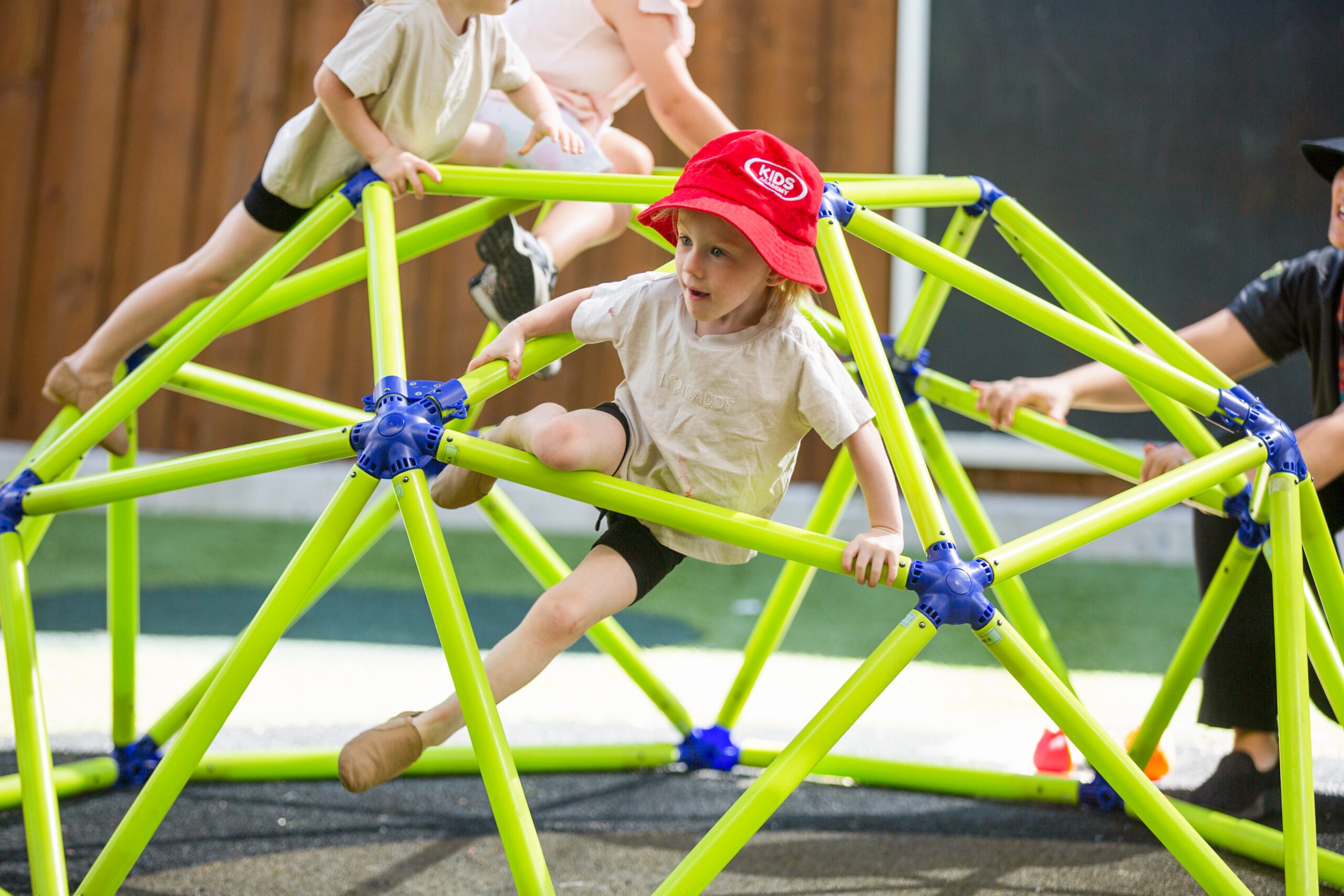
If your toddler can’t stop bouncing or your preschooler is constantly climbing, spinning, or leaping – you’re definitely not alone.
At Kids Academy Early Learning, we see movement as more than just playtime – it’s a powerful way for children to grow, build confidence, and develop the physical skills they’ll need for life. That’s why we’ve created a free Movement Moments cheat sheet for parents – a simple printable with fun, low-prep activities you can stick on the fridge to support movement at home. You’ll find the download further down in this post.
From first wobbly steps to joyful skipping, every little movement helps your child build the strength and coordination they need to thrive.
Why Movement Is a Big Deal in the Early Years
Movement comes naturally to young children – and it plays a big role in their learning and development. These large-body movements (known as gross motor skills) are essential for:
- Strengthening muscles and improving balance
- Boosting brain development and attention span
- Building spatial awareness and physical confidence
- Laying the foundation for everyday tasks like sitting, writing, and participating in group play
By age 1, most children are beginning to crawl or walk. At 2–3, they’re often running, jumping, and climbing. And by 4–5, they’re taking on more complex challenges like hopping, skipping, and ball games.
It’s also important to remember that children grow at their own pace. Some love big, physical play while others enjoy gentle movement like yoga, dancing, or exploring nature. The key is encouraging movement in ways that feel fun and natural for them.
According to the Australian 24-Hour Movement Guidelines, toddlers and preschoolers should get at least 3 hours of active movement per day, including energetic play. And yes – it all adds up throughout the day!
What Movement Looks Like at Kids Academy
Our educators design engaging learning environments that encourage children to move freely, safely, and with purpose. Physical development is embedded into our daily routines and supported through our play-based approach.
You might find children:
- Exploring obstacle courses and balance paths in our outdoor spaces
- Moving their bodies during music and movement time
- Jumping, crawling, and climbing through our learning zones
- Playing group games that build coordination and cooperation
- Helping set up activities or carry resources (those little muscles count!)
Movement is also woven into our Lifelong Learning Curriculum, where physical wellbeing is valued just as highly as cognitive, social, and emotional development.
When Movement Feels Tricky at Home
Some days your child is ready to run a marathon. Other days, they may be glued to the couch. That’s completely normal.
Here are a few ways to make movement part of everyday life:
- Don’t fight the wiggles – movement supports emotional regulation
- Keep it simple – a hallway race or backyard playtime works wonders
- Be a role model – your child will love seeing you move with them
- Aim for short bursts – even 15 minutes here and there adds up
- Turn everyday moments into opportunities – think dance parties, park visits, or helping around the house
Try These “Movement Moments” at Home
To help you get started, we’ve created a free Movement Moments Cheat Sheet you can download and print. It’s filled with easy, screen-free activities that support gross motor development and give your child a fun, healthy outlet for their energy.
Download your free Movement Moments printable below!
These activities can be done indoors or outdoors, and they’re a great way to build confidence through movement at your child’s own pace.
How Movement Supports School Readiness
Strong gross motor skills play an important role in preparing your child for school. From sitting still at group time to developing fine motor skills for writing, physical development supports many of the essential milestones for early learning success.
At Kids Academy, we support the whole child – helping your child build the physical, social, and emotional foundations for a smooth transition to primary school and beyond.
Let’s Keep Growing, Moving, and Learning
At Kids Academy, we understand that physical development is key to lifelong learning. By supporting movement in fun and intentional ways, we help children grow into confident, capable learners.
Interested in learning more about how we support your child’s development?
Book a tour at your nearest Kids Academy centre today.
Let’s move, play, and learn – together.